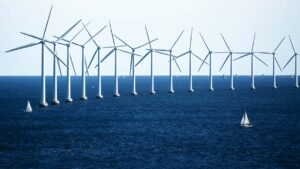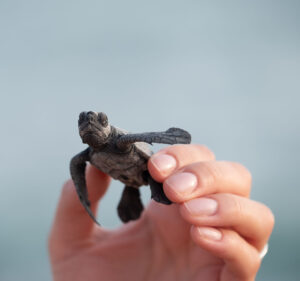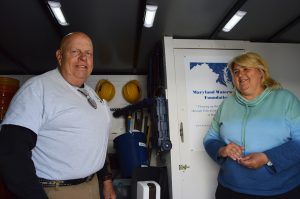Advocate for Eco-Friendly Boating!
I’ve been straw shamed. The waitress simply asked if I’d like a straw. “Sure,” I replied without a second thought, until I heard my dinner companions politely decline the offer. No one actually commented on my less than eco-friendly choice, but afterward I did a little research about the dreaded plastic straw.
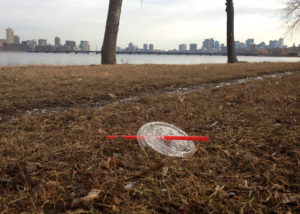
It is not an understatement to say it is a “little thing.” The average straw is no longer than eight inches, yet when about 170 million to175 million “little things” are used daily and end up in our landfills and oceans, it becomes a very “big” thing.
It’s not just about straws. As boaters, we often witness flotillas of litter, fish kills, oil slicks, and dead or injured wildlife. Perhaps this is why boaters are some of the best advocates of clean oceans, lakes and rivers. Time to advocate for eco-friendly boating!
THE BOAT MATTERS
Every boat that uses a fuel-burning engine has a carbon footprint. The process of burning fuel can produce harmful emissions such as carbon dioxide, hydrocarbons, carbon monoxide and lead. Boat manufacturers are looking to reduce emissions by offering hybrid-powered vessels with lighter hull designs.
For example, Greenline Yachts has developed a fleet of boats that combine diesel, electric motor, generator and solar power to reduce emissions for eco-friendly boating. Last year, Volvo Penta announced plans to provide a hybrid inboard power system by 2021. Superyacht builders have brought several hybrid options to market over the last decade. The 40-meter motor yacht, Columbus 40S, offers propulsion variations of diesel, diesel-electric and an electric shaft generator.
Another impressive entry into the world of low emission cruising is the 106.7-meter sailing yacht, Black Pearl. The vessel uses pitch propellers, via shaft generators, to power the yacht’s living quarters and provide better fuel efficiency — which means a lesser carbon footprint.
WHAT’S ON OUR BOAT MATTERS 
We may not be in the market for an eco friendly boat, but we can consider ways to be more environmentally responsible with our current boat-you can still participate in eco-friendly boating!
The bottom of our boats is in constant contact with the water. Hard, ablative and silicone coatings have been the industry standard for bottom paint, but none of those is without environmental impact due to leaching of biocides and copper components.
Fortunately, biocide-free solutions are available. The Sealcoat System uses a biocide-free coating that incorporates moving microfibers to inhibit unwanted growth. Ultrasonic Antifouling uses one to four transducers attached to the inside of the hull to create an environment of moving water molecules that makes it difficult for microorganisms to survive. While your choice of product may be influenced by the type of hull and how or where you boat, most products are now available with reduced toxins and copper.
WHAT’S IN OUR BOAT MATTERS 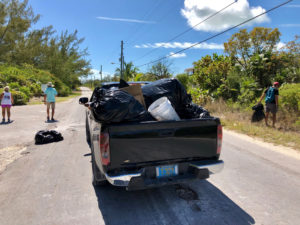
According to the National Academy of Sciences, 64% of the oil introduced annually into the marine ecosystem is from land run-off and recreational boats. Petroleum products dissolve slowly, accumulate in sediment and are toxic to wildlife, even in small amounts. We may not think of ourselves as impactful as the Deepwater Horizon spill, but two cups of oil can create a one-acre oil slick.
Attentiveness in not topping off tanks and using absorbent products when we fuel can help mitigate spills. Tasked with removing unwanted water from our boat, bilge pumps often dump harmful oils or fuel overboard as well. While keeping our bilges clean from oil or fuel is ideal, accidental discharges happen. Blue Guard Innovations has introduced the BG-One, a smart bilge switch with an oil and fuel detector to help reduce accidental discharge of those toxic fluids.
WHAT LEAVES YOUR BOAT MATTERS
With a keen awareness of single-use plastics’ negative role on the marine eco system, many boaters try to avoid them. Each year, about 1 million seabirds and 100,000 marine animals die from ingesting plastic. Incorporating reusable bags, refillable water bottles, reusable or bamboo cutlery, and products made from recycled elements into a boating lifestyle can cut the amount of debris added to our landfills.
Another often overlooked aspect of our environmental impact is gray water discharge. I admit, I fell into this category. Many detergents, shampoos, soaps and cleaning products contain phosphates and other chemicals that are harmful to marine life. Being aware of product ingredients can lead to better choices.
Boaters who go out for a day cruise or cruise at great length are increasingly presented with clean boating choices. These matter when we consider that more than 11 million boats were registered in 2017 in the United States alone. One boater, one choice, one change matters, even if it begins with one straw.
SPARK CHANGE ON YOUR FAVORITE WATERWAYS
Tim and Diane Leighton, boaters who visited Great Harbour Cay Marina in the Bahamas, gathered a group of fellow guests and spent a day collecting trash. It began with one boater recognizing a chance to make an impact. Tim proposed the cleanup project to the marina staff, who was quick to offer support with transportation, bags and disposal. The volunteer cleanup crew enjoyed the feeling of making a difference and meeting afterward for lunch at a local restaurant that gave them free rum punches. Sometimes all it takes is getting started.
Host an Eco-Friendly Boating Cleanup:
• Ask local boaters, marinas or yacht clubs for support.
• Determine supplies you will need.
• Plan for where collected trash will be disposed.
• Download Boat U.S. Foundation’s Waterway Cleanup Guide (boatus.org).
• Take advantage of support through other organizations and businesses.


